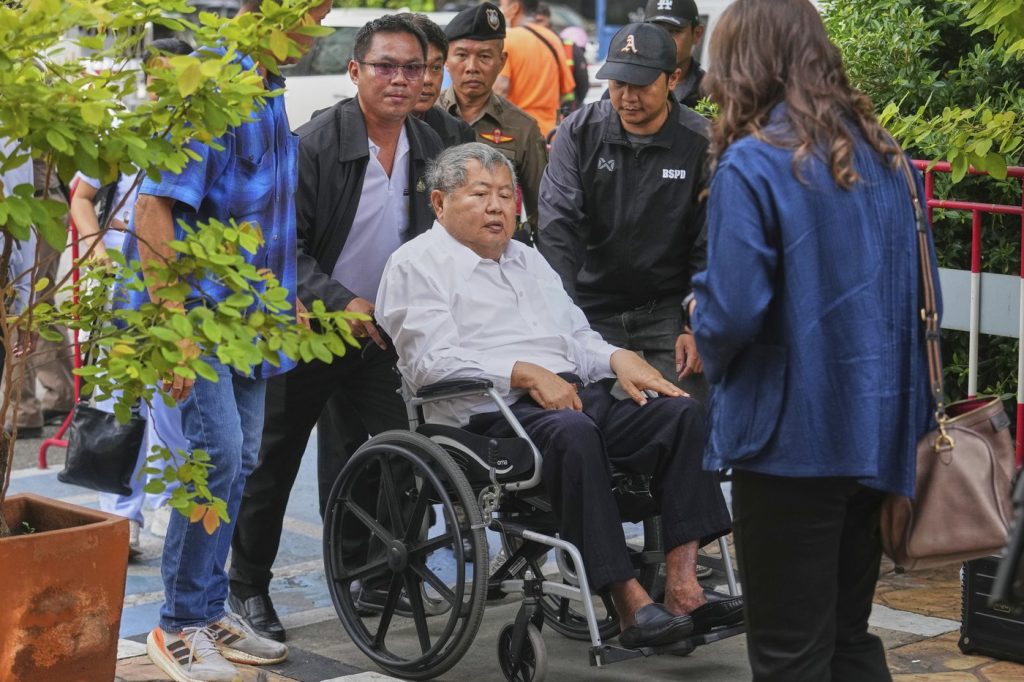BANGKOK (AP) – On Friday, May 16, 2025, a construction magnate and a group of more than a dozen individuals surrendered to police in Bangkok regarding charges of criminal negligence related to the collapse of a high-rise building that was under construction. This tragic event occurred in the wake of a significant earthquake on March 28, 2025, which was based in neighboring Myanmar. The earthquake resulted in substantial destruction, leading to numerous fatalities, particularly in the area where the building collapsed.
Among those charged is Premchai Karnasuta, the president of Italian-Thai Development Co, which is the principal contractor for the ill-fated project. The list of the accused includes not only Karnasuta but also various designers and engineers involved in the construction. In total, 17 individuals are facing felony charges of professional negligence causing death, as confirmed by Bangkok's deputy police chief, Noppasin Poonsawat. Although the accused have publicly denied any wrongdoing, the seriousness of the allegations carries significant legal implications.
Reportedly, ninety-two individuals perished when the building, intended to serve as the new State Audit Office, collapsed during the earthquake, and a small number of victims remain unaccounted for. This incident marked a significant disaster in Thailand, as it was the only reported structural collapse in the country amid the seismic events that affected the region. The search for missing victims officially concluded on Tuesday; however, the efforts to identify the remains through DNA testing will persist.
In a press conference, Poonsawat indicated that substantial evidence, including expert testimonies, suggested that the construction plans did not adhere to established standards and codes of safety. The Bangkok Post further reported findings that highlighted crucial flaws in the core lift shaft of the building and inadequate quality of concrete and steel used in its construction. Investigations have also uncovered various allegations regarding irregular documentation tied to the project, raising concerns about accountability and oversight.
Thai media outlets have consistently reported suspicions of misconduct linked to the project since the catastrophic collapse. These reports have pointed fingers at the Italian-Thai Development Co’s Chinese joint venture partner, the China Railway No. 10 company, which is involved in multiple construction initiatives globally.
A Criminal Court issued arrest warrants for the 17 individuals on Thursday preceding their surrender, with 15 of them turning themselves in at a police station on Friday morning. The remaining two suspects were anticipated to follow suit later in the day, illustrating a swift response to the legal proceedings stemming from this major disaster.
The epicenter of the March 28 earthquake was located in central Myanmar, where it resulted in over 3,700 fatalities and extensive damage in major urban centers, including Mandalay and Naypyitaw. The repercussions of the earthquake extended beyond national borders, affecting both structural integrity and loss of life in the surrounding regions.
Notably, this case marks the second major legal controversy for Premchai Karnasuta. In 2019, he faced convictions for wildlife poaching, where he served about three years in prison after being found guilty of killing protected species and possessing illegal weapons. This history raises questions about his ethical practices and overall accountability in his professional undertakings.
The collapse of the high-rise in Bangkok has not only led to a significant loss of life but has also ignited widespread public outrage and scrutiny regarding construction safety and regulatory compliance in Thailand. As investigations continue, the outcomes of these legal actions may have far-reaching implications for the construction industry and its governance in the country.











